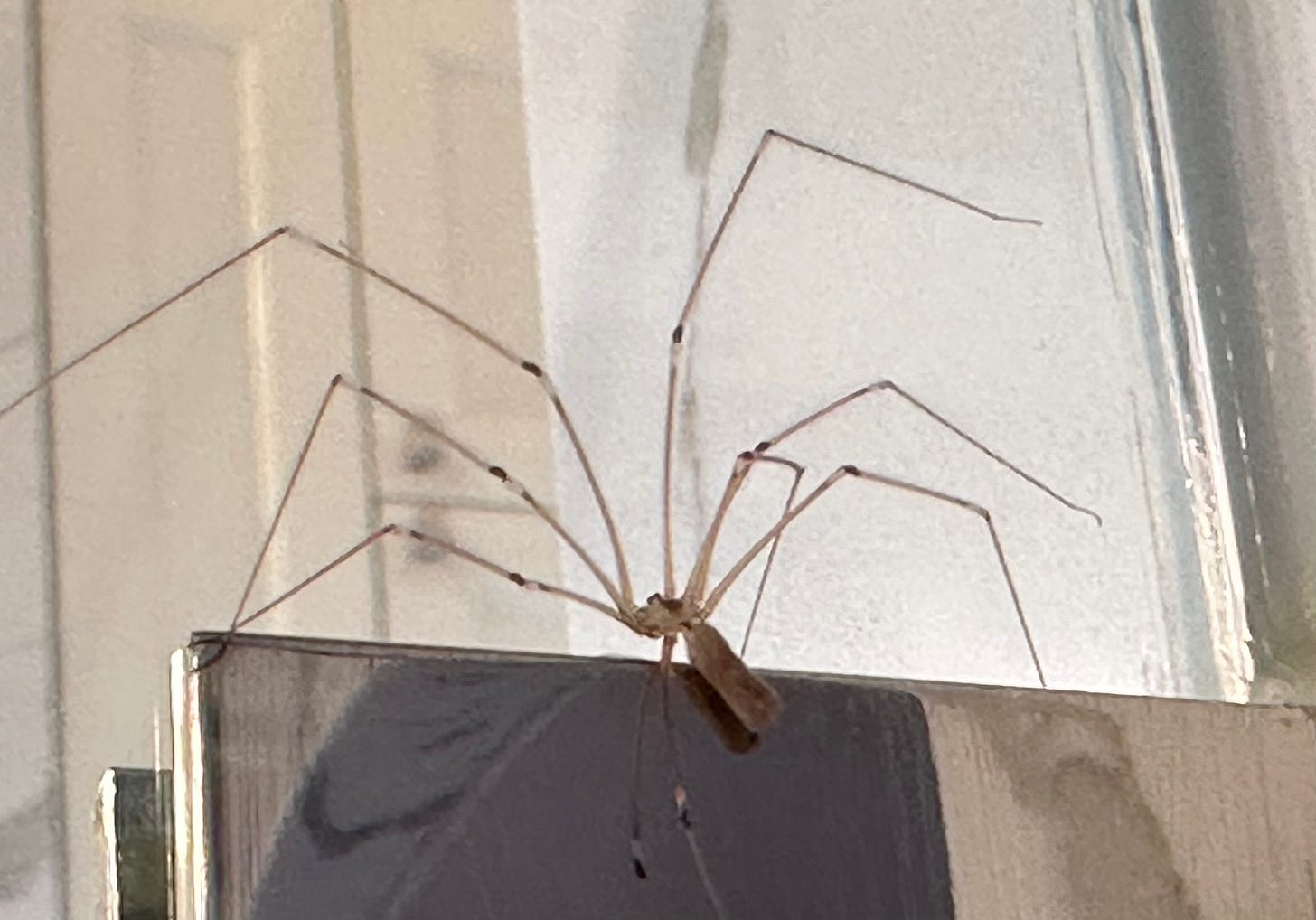Fear of the Different: How our projections create division and harm.
The current climate of division leads to dehumanization. We can foster greater empathy and connection by understanding our projections and embracing difference rather than fearing it.
I'll never forget the first time I saw the movie E.T. the Extra-Terrestrial. It was a summer evening, and I stood in a long, winding line behind a group of excited teenage boys. Their energy was contagious, buzzing with anticipation for the movie. As we stood waiting, a giant spider caught my attention—a spider making its way along the wall. I watched its deliberate movements with fascination. Suddenly, one of the boys noticed it too. Without hesitation, he lifted his boot and stomped on it, his friends laughing with glee at the act.
As I reflected on that moment while watching E.T., I couldn't help but see the parallels. In the film, we meet an extraterrestrial being—a gentle creature lost on Earth. Yet, E.T. was feared, misunderstood, and almost destroyed because he was different. The human instinct to eliminate what we don't understand can be immediate and primal.
What I witnessed that evening in line, and what I saw play out on the screen, wasn't just about a spider or an alien—it was about us. It was about how we respond to those outside our immediate circle. Be it a spider crawling across a wall or a stranger from another country, the instinct to destroy or push away the unfamiliar is deeply embedded in us. We fear what is different.
I've always had a deep appreciation for spiders. I admire their quiet tenacity and the intricate beauty of their webs. In studying spiders, I taught my daughters about the beauty and worth of all life, no matter how small or strange it may seem. I've never knowingly killed a spider, and I still rescue them when they wander into my space. Everyone deserves to be seen for their intrinsic value, not just their perceived difference. This is at the very heart of my work as a psychologist.
And yet, it's that very difference that so often causes fear, contempt, and even violence. In E.T., there are two camps of adults regarding the alien's discovery: those who want to kill it and those who wish to study it in a lab. Neither group sees E.T. for what he truly is—a being who wants his home. Fortunately, there is the boy Elliott, who protects and befriends E.T., helping him to find his way home.
The instinct to dehumanize the "other" is something we see played out over and over again. Whether it's someone from another country, an immigrant, or someone with a different gender identity, our first reaction is often fear or disgust. We project our anxieties and discomfort onto these people, justifying our desire to push them away or destroy them. This very dynamic is alive in today's political climate, where rhetoric has escalated to the point where differentness is a threat to our way of life, with some going so far as to claim that they "eat our pets." It's a dehumanization that's rooted in fear—fear of the unknown, fear of change, and fear of those who we perceive as different.
One of the first things we learn in psychology classes is how defense mechanisms reside in each of us, helping or hurting us.
Projection is a psychological defense mechanism that helps us protect our egos from difficult or uncomfortable emotions. When we project, we take qualities or emotions we don't want to recognize in ourselves and attribute them to others. So, when we look at another group and feel contempt or disgust, it's often an unconscious projection of something unresolved within ourselves. The "enemy" we see outside is, in reality, a reflection of our inner fears and insecurities.
Projection can be a powerful defense, shielding us from emotions that challenge our sense of self. But when left unconscious, it becomes destructive, leading to a lack of empathy, compassion, and understanding. Instead of seeing the shared humanity in others, we dehumanize them. Instead of approaching with curiosity and an open mind, we seek to destroy what we don't understand.
The teenage boy who stomped on the spider did so without thought or empathy. And perhaps that's where the real work begins—understanding why we react so strongly to difference. How can we learn to see the "other" not as a threat but as an opportunity for connection? How do we recognize when our defenses, like projection, keep us from truly understanding ourselves and the world around us?
In my work as a psychologist, I've learned that fear of the unfamiliar can blind us to the beauty and value of difference. If we are willing to look a little deeper and examine our fears and projections, we may find that the things we feared most are not so different from us after all. This requires strength and bravery.
Let's not be the ones who snuff out the spider, the extraterrestrial, or the immigrant. Let's instead choose empathy over fear, curiosity over contempt, and compassion over destruction. After all, we're all just trying to find home.
Postscript:
The inspiration for this post came from this little guy, a Long-Bodied Cellar Spider, aka Daddy Long Legs, who made its way into my shower. As it tenaciously tried to escape the water, I took it out and placed it in a dry corner outside the shower. The following day, I noticed it was back inside the shower on a more protected ledge. It is a lesson to me that we don’t always understand the motivations of others—spiders included. It knew where it wanted to be.






Thank you, Susan, for reminding us that there are simple solutions for our problems, and they begin with us.
Meg